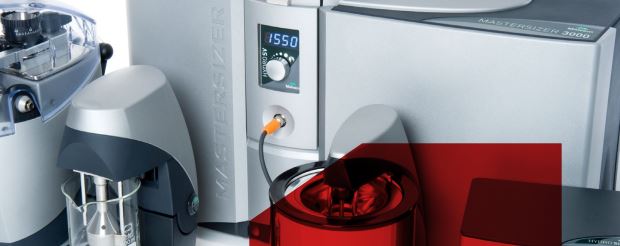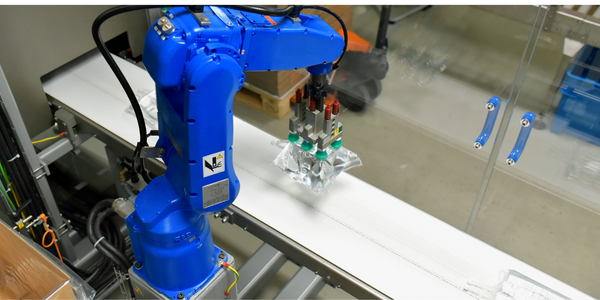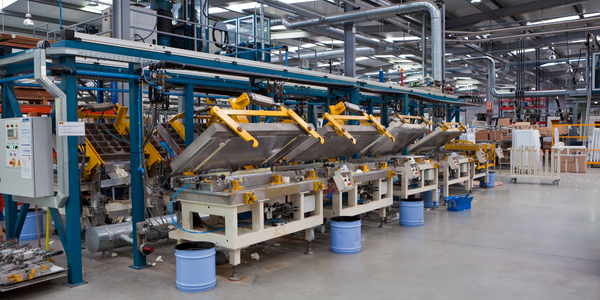下载PDF
Pioneering Lead Generation with Conversational Messaging: A Case Study of Open Universities Australia

适用功能
- 产品研发
- 销售与市场营销
用例
- 对话机器人
- 时间敏感网络
挑战
- 提供全天候聊天机器人覆盖以瞄准国际受众并增加收入
- 希望增加准学生的切入点和渠道,以便更轻松地与教育聚合器互动
- 长期目标是增强自动化以匹配人工代理的价值
客户
澳大利亚开放大学 (OUA)
关于客户
Open Universities Australia是一家总部位于澳大利亚的在线高等教育机构。该组织以前被称为澳大利亚开放学习机构。主席是 Bruce S. Dowton 教授,首席执行官是 Stuart Elmslie。
解决方案
作为在线高等教育领域的领导者,OUA 拥有 13 家大学合作伙伴,为 350,000 名学生提供服务,并于 2016 年通过与 LivePerson 的合作开启了自动化之路。
为了解决他们的挑战,OUA 在过去两年中创建了自动化用例路线图。作为一项关键战略计划的一部分,OUA 与 LivePerson 合作,在 2017 年初推出了他们的第一个高等教育聊天机器人体验,旨在捕捉下班后的流量。这些发展成功地吸引了更广泛的潜在候选人,并增强了品牌平台的服务。
运营影响
数量效益
相关案例.

Case Study
Centralizing Data for Improved Efficiency: A Case Study on Malvern Panalytical
Malvern Panalytical, a UK-based hi-tech electronics company, was grappling with the challenge of decentralized data storage. The company had a vast amount of unstructured data scattered across various platforms, from hard drives to emails and floppy disks. This made the data searching process extremely cumbersome and inefficient. The company's rapid growth, from 200 to over 1,000 employees in a decade, and expansion across three continents further exacerbated the need for a more structured and centralized data system. As a company involved in electronics manufacturing and software development, it was crucial for Malvern Panalytical to find a platform that could structure all their data, track all modifications of documents in real time, and provide clear visibility of the internal information flow across all its facilities.

Case Study
Managed Hosting Platform
Formula 1® is a sport where every millisecond matters. With changing preferences and the growth of the digital medium, many fans choose to experience the sport through the F1.com website. The website needs to deliver a superior experience to tens of millions of fans across the world consistently. Hence, it is imperative to have a robust platform that can deliver the required performance and scale with growing trac and dynamic fan expectations. Some of the key challenges are: • Every race weekend, Formula1.com attracts up to 7 million fans. Managing this huge surge in website traffic, requires a scalable hosting platform that can simultaneously allow millions of fans to experience the excitement of the sport seamlessly. • Fans across the globe expect an engaging and immersive experience through enriched and enhanced race content across multiple devices. To meet this requirement Formula1.com needs to have a robust platform that is able to deliver real-time updates and information across screens, be it tablets, TVs or smartphones. • A global brand like Formula 1® needs to ensure it delivers a consistent user experience across all platforms across the globe. This consistent delivery of enriched content cannot be compromised through downtime or any other issue at any point. • In an age where threats to global websites are prevalent, Formula 1® needed a platform that was ready to meet any challenge to its website. They needed a solution that delivers consistency, scalability and yet at the same time is continuously monitored, secure and reliable.

Case Study
HSBC's Transition to Conversational Banking through Intelligent Automation
HSBC, one of the world's largest banking and financial services organizations, was facing a challenge with its customer service operations. With over 19,000 customer service agents, the bank was dealing with a high volume of repetitive tasks that put pressure on its agents. The traditional career path in the contact center world was also leading to inevitable attrition, as it was defined as agent → team manager → department manager → operations manager → head of contact centre. This lack of opportunity as the field narrows held back the chance of reaching the highest possible customer satisfaction with every interaction. Furthermore, HSBC was planning to shift towards Conversational Banking, which was expected to grow interactions considerably and require conversational experts to manage the chatbots.

Case Study
Flow Robotics: Scaling Up Production and Accelerating Product Development with IoT
Flow Robotics, a Danish manufacturer, developed flowbot™ ONE pipetting robots to alleviate the strain on bioanalysts in life-science laboratories and hospitals across Europe. These robots were designed to automate part of the testing process, speeding up the time it takes to produce results and reducing pressure on staff. However, the company faced challenges in scaling up production and accelerating product development. High workloads and physically challenging conditions have long been an issue for laboratory professionals. Flow Robotics estimates that around half of medical lab technicians carry out the same arm movements for at least a quarter of their working day. The American Society for Clinical Pathology reported that 85% of laboratory professionals feel burnt out; 36% struggle with inadequate staffing; and 32% face a heavy workload and pressure to complete all testing on time.

Case Study
EDF's Transformation: Enhancing Employee Experience through IT Modernization
EDF, a major UK utilities company, was grappling with a highly customized service management system that was largely manual, with limited potential for automation. This made it difficult to predict or prevent system failures and provide a resilient service. The company's IT system for incident handling was purely manual, leaving no room for modernization. EDF wanted to serve its business and residential customers better by improving the response time to rising energy demands. To achieve this, the company needed to provide its employees with the right tools for improved productivity, better collaboration, and an enhanced IT experience at a reduced cost to serve.






